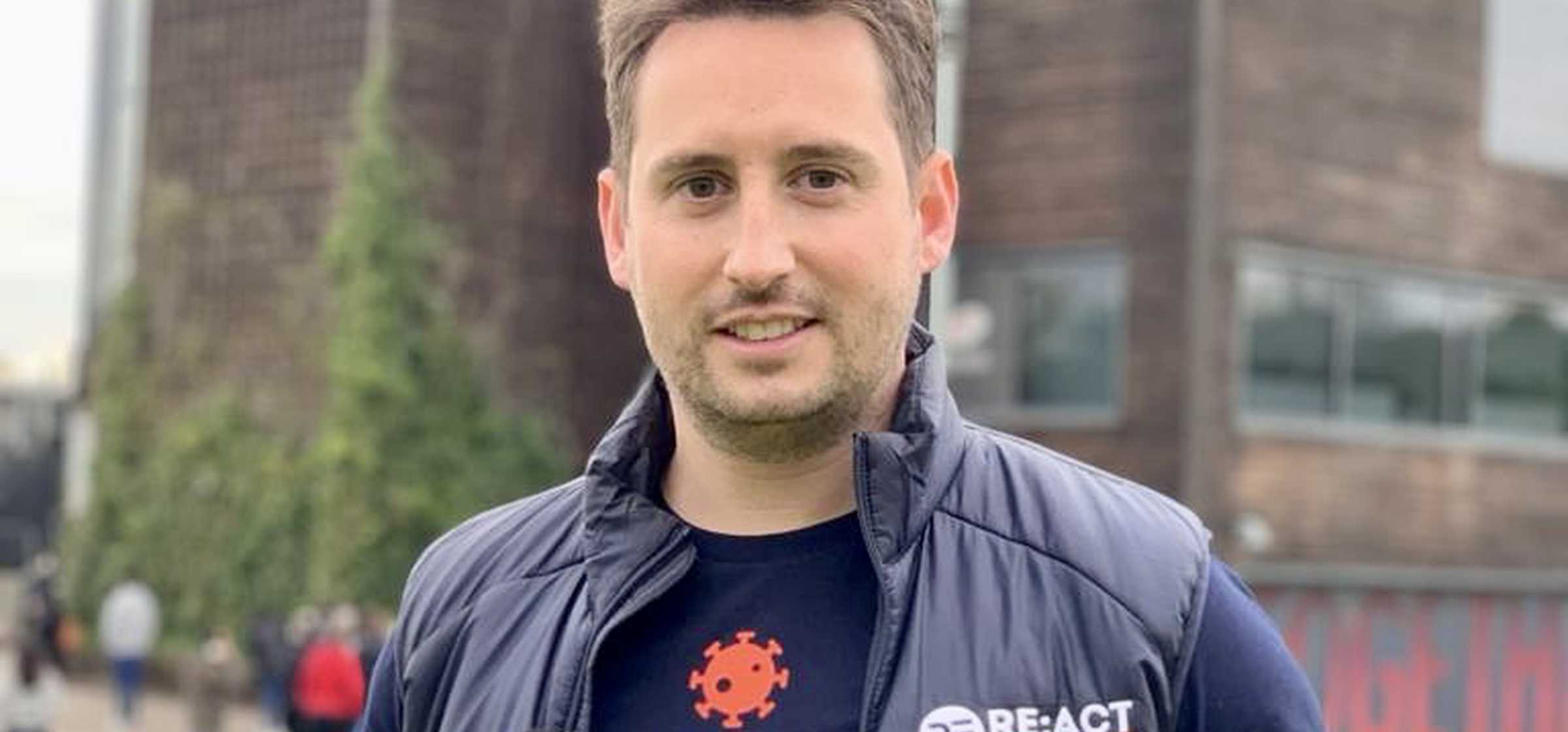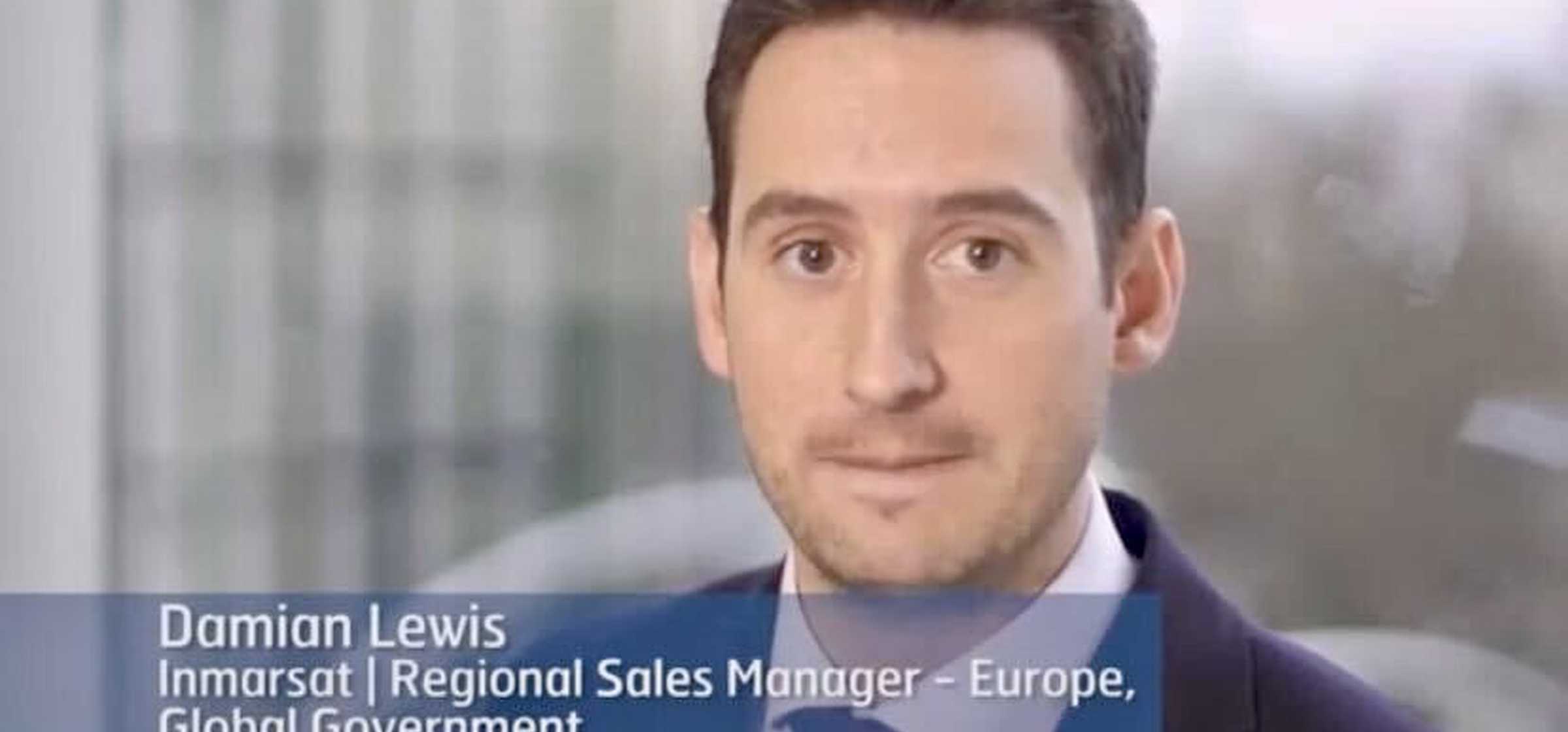Keeping our volunteer Responders connected

Posted by Robert Cole 27th September 2022 News
Estimated Reading Time: 3 mins
RE:ACT is fortunate to attract highly-skilled volunteers from a rich cross-section of both the public and private sectors. Responders are drawn not only from the ranks of the armed forces and the “blue light” emergency services, but from the NHS, the technical, legal, commercial, educational, and humanitarian sectors.
Many of our responders are in full-time work but are ready to use their valuable annual leave to help those in crisis. In most cases, their employers are only too happy to let them deploy at short notice, knowing that their colleagues will be helping the most vulnerable and that they’ll be building valuable skills and experience.
RE:ACT volunteer Damian Lewis is Market Development Manager at Inmarsat, the leading provider of global, mobile satellite communications services. Within a few months of joining the company in 2017, Damian linked up with a group of colleagues for an initial disaster response training weekend with RE:ACT.
Damian is now one of an incredible 90 Inmarsat colleagues who have signed up to volunteer for RE:ACT to help the most vulnerable and hardest to reach people experiencing disaster.
As part of its support for us, the company generously provides vital satellite communications equipment, and allows their employees up to five days of volunteering leave.
Damian says he has always been interested in the humanitarian sector and had “skirted around the edges of it” in a previous job.
“RE:ACT offered the perfect opportunity to get fully involved. You come to the aid of people at their moment of greatest need. A mission-first attitude is instantly instilled in you during training, and everyone has a supportive team mind-set. We’re all working towards common goals and there’s a constant focus on the people in need,” says Damian.
Before joining Inmarsat, Damian had previously worked for a small company specialising in tracking, communication and risk intelligence for high risk, post-conflict environments which gave him some experience of working in hostile environments.

Damian in Inmarsat mode!
His first deployment with RE:ACT, in 2017, was in response to the devastating Hurricane Irma, a category five hurricane which ripped across the Caribbean.
During the assignment, he was part of a forward deployment to the British Virgin Islands, and with his technical skills was the perfect person to lead on getting vital communications up and running.
“You can almost guarantee that after a natural disaster, the terrestrial communications infrastructure will be affected. In layman’s terms, masts will have been destroyed by landslides, consumed by tsunamis, blown apart by hurricanes or shaken from their foundations by an earthquake,” explains our International Operations Manager, Paul Taylor.
He adds: “The one thing we need to be able to do is communicate, be that relaying the needs of the affected communities we are supporting or liaising with humanitarian partners as part of our emergency safety plan.”
Paul says partnering with Inmarsat has allowed RE:ACT to do this as they provide us with two distinct components.
“Each response team has a BGAN satellite terminal. This is small enough to be carried in a daysack, simple to use and when connected to an Inmarsat satellite, in essence, provides a local wifi network. It means we can connect laptops and phones which we normally use for sending reports and images at the end of the day,” Paul continued.
He says all responders also carry an IsatPhone 2 satellite phonewhich can be used to send texts and emails but critically enable voice communications.
“Plainly this is particularly useful if things go awry, and we urgently need support. Quite simply, without Inmarsat we wouldn’t be able to operate.”
Commenting on his employer’s relationship with RE:ACT, Damian added: “Without a doubt, Inmarsat has been fantastic in allowing so many of us to volunteer. I think many other good companies would see the advantages of allowing their staff to do the same. I regularly encourage friends and colleagues to join RE:ACT. It’s especially relevant to recommend now that there are more UK opportunities too, because this hugely broadens the potential volunteer base.”
Since his first deployment, Damian has remained one of our busiest responders supporting communities through Covid-19 and temporarily leading the London Region.
Spurred on by his volunteering work, Damian has led many fund-raising challenges with colleagues. Between them they have raised more than £25,000 for RE:ACT by organising various sponsored runs, Tough Mudder events, and even a Three Peaks Challenge!
